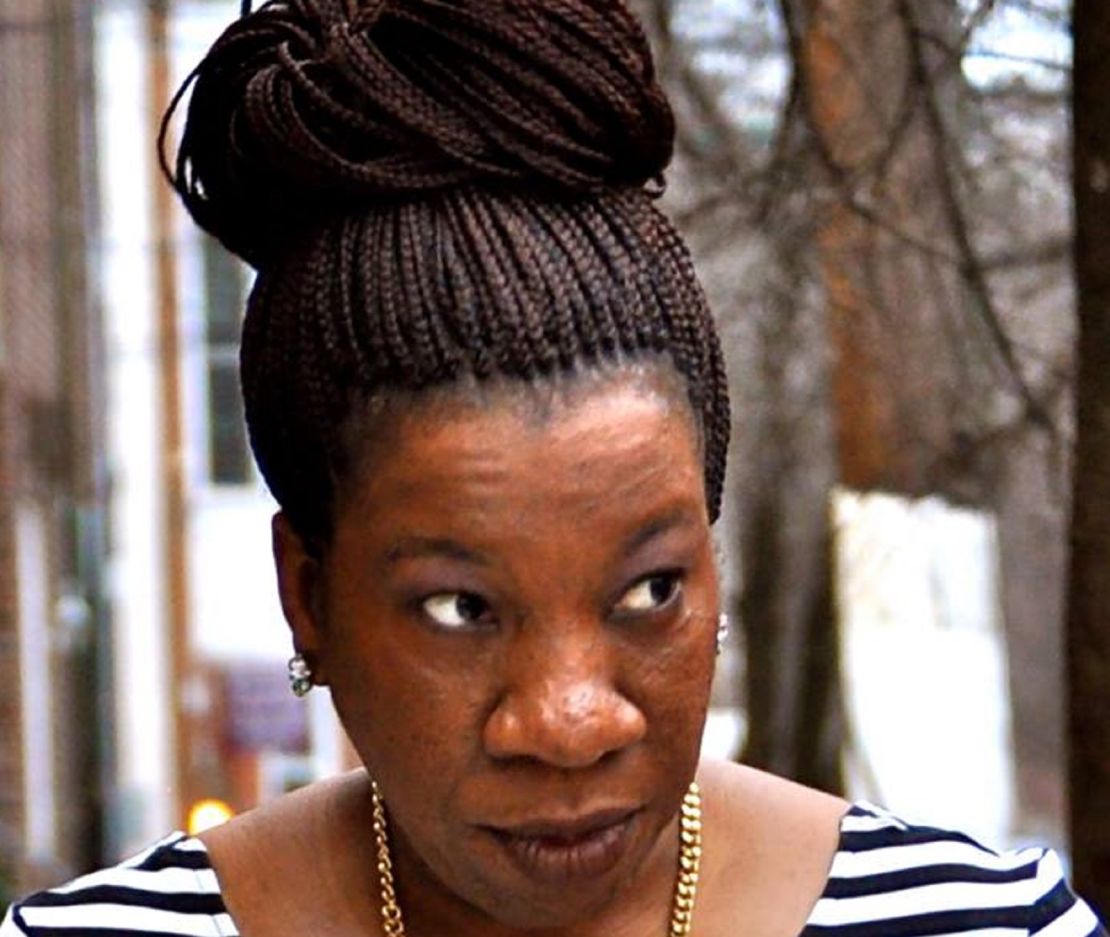Editor’s Note:
‘Me too.’
Ever since the allegations against movie mogul Harvey Weinstein surfaced, those two simple words have become a rallying cry.
Women – and some men – have used them to share personal stories of sexual harassment and assault.
The hashtag caught fire over the weekend when actress Alyssa Milano tweeted a call-out to victims “so we might give people a sense of the magnitude of the problem.”
But the online movement didn’t start with Milano on Sunday. It started more than 10 years ago with activist Tarana Burke.
“It’s not about a viral campaign for me,” she told CNN on Tuesday. “It’s about a movement.”
And that movement began – as she put it – in the “deepest, darkest place in my soul.”

Then
Burke is the program director for Brooklyn-based Girls for Gender Equity. Its goal is to empower young women of color.
But the seeds for the movement were planted earlier than that – in 1996, when Burke was a youth camp director.
After an all-girl bonding session, a young girl asked to speak to Burke privately.
This is how she describes the encounter on the Just Be site:
“For the next several minutes this child … struggled to tell me about her ‘stepdaddy’ or rather her mother’s boyfriend who was doing all sorts of monstrous things to her developing body. … I was horrified by her words, the emotions welling inside of me ran the gamut, and I listened until I literally could not take it anymore … which turned out to be less than five minutes. Then, right in the middle of her sharing her pain with me, I cut her off and immediately directed her to another female counselor who could ‘help her better.’ “
Burke said she never forgot the look on the girl’s face.
“The shock of being rejected, the pain of opening a wound only to have it abruptly forced closed again – it was all on her face,” she wrote.
“I couldn’t help her release her shame, or impress upon her that nothing that happened to her was her fault. I could not find the strength to say out loud the words that were ringing in my head over and over again as she tried to tell me what she had endured. …
“I watched her walk away from me as she tried to recapture her secrets and tuck them back into their hiding place. I watched her put her mask back on and go back into the world like she was all alone and I couldn’t even bring myself to whisper … me too.”

Later
That was the genesis of the movement – to help young women of color who had survived sexual abuse, assault and exploitation.
“On one side, it’s a bold declarative statement that ‘I’m not ashamed’ and ‘I’m not alone.’ On the other side, it’s a statement from survivor to survivor that says ‘I see you, I hear you, I understand you and I’m here for you or I get it,’” she told CNN.
The movement has taken a life of its own, Burke said.
“It started with young people and I quickly realized adults needed it too,” she said.
“When you experience trauma and meet other people that have a similar experience, and you show empathy for each other, it creates a bond. “
Today
Late Monday, actress Milano credited Burke with creating ‘Me too’ and tweeted a link to her organization.
“The origin story is equal parts heartbreaking and inspiring,” Milano tweeted.
Burke said she’s happy to see her idea reach a larger audience.
“I’ve seen it happen over and over again in small waves, but to see it happen en masse has been pretty amazing,” she said.
The challenge now is to figure out how to take it beyond a viral moment.
“I think the one responsibility we have as survivors – once we get to a place where we can – is to create an entry point to healing for other survivors,” she said. “For years I couldn’t figure out what that would be for me and then ‘Me too’ became that thing.”
She said she’d like to see conversations about what healing looks like. She wants sexual violence or gender-based violence approached as social justice issues.
“I think the viral moment is great but the amplification of that – I worry about disclosing their status as survivors en masse on social media and not having space to process. I worry about survivors coming on to social media and being bombarded with messages of ‘me too,’” she said.
For now, ‘Me too’ shows no signs of slowing.
Since noon Sunday, the #MeToo hashtag has been used 825,000 times, Twitter reported Tuesday.
The numbers are equally staggering on Facebook.
The company said that in less than 24 hours, 4.7 million people around the world have engaged in the “Me too” conversation, with more than 12 million posts, comments and reactions. According to Facebook, more than 45% of people in the United States are friends with someone who’s posted a message with the words ‘Me too.’
CNN’s Lisa Respers France contributed to this story.
